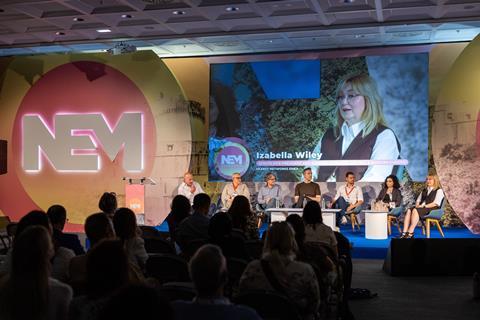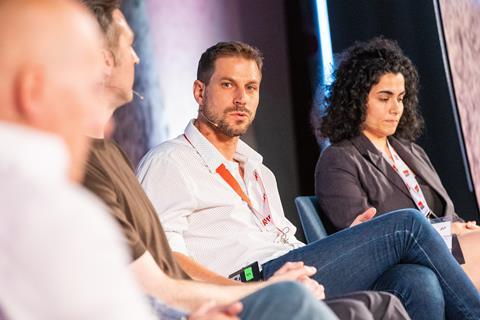Producers in Turkey and Israel lean on global sales to support budgets that have more than doubled in five years

Production inflation is forcing greater reliance on international distribution financing and soft money to get shows made, according to execs here in NEM Dubrovnik.
Commissioners across Europe shared their experiences of inflation over recent years, which has forced continual adjustment to the models being employed to get series off the ground.
Ampere Analysis data showed that while global scripted first-run series orders were down 25% year-on-year in 2024 – from an average of 777 in 2023 to 587 last year – the global spend on content had continued.
“We have had to make decisions every day about how we manage this… and one of the decisions is commissioning less or renegotiating deals,” said Izabella Wiley, senior vice-president and GM at Hearst Networks CEE, adding that shifting rights requirements for various platforms is one way to control costs.
Hasret Ozcan, president of Turkish distributor Inter Medya, agreed that her company has experienced rampant inflation over recent years, largely driven by a weakening Turkish lira.
“A Turkish episode used to cost around $190,000 six or seven years ago, but today it’s costing $500,000 to $600,000 per episode.
“The biggest impact is the dollar inflation rates compared to the Turkish inflation rate, which are not going in parallel.”
Ozcan highlighted that the growing popularity of Turkish dramas and their distribution around the world had mitigated some of the impact but admitted that the industry remains in a challenge position.
Saar Dor, chief operating officer and chief financial officer at Keshet International, said his distribution company had also been supporting productions with “much higher” deficits, adding that reliance on global sales had surged as a result.

“We need to rely much more on the international side of the business, and we need to ensure that the content produced is going to be international,” he said, adding that in some cases budgets had doubled over the past five years.
“We have also needed to be creative and find other regions to shoot in to get tax incentives, because there isn’t one in Israel for television,” he said, noting the company has turned to countries including India and Georgia to find lower production costs.
Lining up Lithuania
Frank Spotnitz, chief exec at Big Light Productions, pointed to Scandi co-production Come In Peace as an example of how European shows are getting produced in the current climate, but also highlighted the limitations of soft money schemes.
“The pressure to do more with less has never been greater,” he said. “We just did a Swedish science fiction series called Come in Peace, a coproduction with ZDF in Germany and Newen Connect.
“It takes place in Stockholm, but we shot it in Lithuania, because while things like tax credits and just lower cost of production in territories have always been important, now they are especially important.”
He added that the “reliability” of tax credit schemes can also cause challenges. “In Sweden, there is a [tax incentive] programme, but it’s sort of a race to see if you can get to the website and you have to be there in the first few seconds.
“If you’re not there in the first few seconds, you’re not going to get it and we weren’t – if we had been [and secured the tax incentive], we would have been filming the whole thing in Sweden, but because we weren’t among those lucky few, we went to Lithuania.”
Spotnitz praised his “fantastic experience in Lithuania” but said that for all his productions, “it’s about tax incentives and finding a low cost of production.”
Katarina Pavlović, programme director of Serbia’s Prva TV and B92, added that her strategy has been to produce more lower cost studio-based talk-shows to enable continued investment in scripted.
“And in scripted, for the last three years we have leant more into developing original content in order to be able to get the revenue back over more years across different platforms - so we need to own the IP.”
Igor Draguzet, chief content officer at CEE-focused CME, applied a similar strategy to focus on in-house production that he said has enabled the company to increase its production volumes.
“That meant that we decided that we would create, own and monetise our own content by moving it through different platforms and different windows to try and exploit the content to the maximum.
“That’s been paying off for us, there’s been inflationary pressure, but we have not seen a decrease in volumes in terms of commissions – we’ve actually been growing our volumes.”








No comments yet